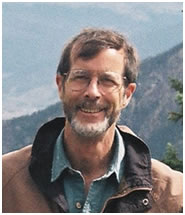Passive Treatment of Mining-Influenced Water: From Bench Scale to O&M
Sponsored by: U.S. EPA Technology Innovation and Field Services Division
Archived: Monday, November 14, 2016
Passive Treatment of Mining-Influenced Water: From Bench Scale to O&M
2016-11-14
U.S. EPA Technology Innovation and Field Services Division
Passive treatment refers to processes that do not require frequent human intervention, operation, or maintenance, and typically employ natural construction materials, natural treatment media, and promote growth of natural vegetation. Biochemical reactors (BCRs) are a type of passive treatment system that use microorganisms to remove contaminants from mining-influenced water (MIW). BCRs and other passive treatment processes can be cost-effective and lower-maintenance treatment options for mine site cleanups. They also offer significant opportunities to reduce the environmental footprint associated with treatment of MIW.
In recent years, development and implementation of passive systems has increased. However, there’s still plenty to learn about their effectiveness. Pilot studies are good ways to study passive treatment and their application scenarios. In this webinar, two case studies will be presented that document design and implementation of BCRs to passively treat MIW – from bench-scale tests to full-scale operation and maintenance, including recovery of iron oxide byproducts for sale.
Case Study 1: Passive Treatment of Metal Mine Drainage at an Abandoned Mine near Lake Shasta, California
James Gusek, Sovereign Consulting, Inc. and Rick Weaver, USDA Forest Service
Case Study 2: Operation and Maintenance of Passive Treatment Systems at Two Bituminous Coal Mines in Southwestern Pennsylvania
Bob Hedin, Hedin Environmental and Iron Oxide Recovery, Inc. and Amy Wolfe, Trout Unlimited, Pennsylvania Coldwater Habitat Restoration Program and Easter Abandoned Mine Program
Accessibility, Recording, and Content Disclaimer
Rehabilitation Act Notice for Reasonable Accommodation
It is EPA's policy to make reasonable accommodation to persons with disabilities wishing to participate in the agency's programs and activities, pursuant to the Rehabilitation Act of 1973, 29 U.S.C. 791. Any request for accommodation should be made to Michele Mahoney at 703-603-9057 or mahoney.michele@epa.gov, preferably one week or more in advance of the webinar, so that EPA will have sufficient time to process the request. EPA would welcome specific recommendations from requestors specifying the nature or type of accommodation needed. Please note that CLU-IN provides both alternate phone call-in options and closed captioning for all webinars, and requests for these specific accommodations are not necessary.
Webinar Recording
By participating in this CLU-IN webinar, you automatically agree to authorize recording of audio and visual content presented during this live event and consent to subsequent use of this recording in the public domain by the U.S. Environmental Protection Agency. This recording may include questions, comments and poll responses provided by you during the live event in addition to your name, voice, image or likeness. This recording will be made available after the conclusion of the live event as part of the CLU-IN webinar archives, and will remain available indefinitely. If you do not wish to consent to the recording, please do not join the live event, and contact Jean Balent at 202-566-0832 or balent.jean@epa.gov to discuss your concerns.
Content Disclaimer
This webinar is intended solely to provide information to the public. The views and opinions expressed as part of this webinar do not necessarily state or reflect those of the U.S. Environmental Protection Agency. It is not intended, nor can it be relied upon, to create any rights enforceable by any party in litigation with the United States, or to endorse the use of products or services provided by specific vendors. With respect to this webinar, neither the United States Government nor any of their employees, makes any warranty, express or implied, including the warranties of merchantability and fitness for a particular purpose, or assumes any legal liability or responsibility for the accuracy, completeness, or usefulness of any information, apparatus, product, or process disclosed, or represents that its use would not infringe privately owned rights.
Presenters:
 James J. Gusek, P.E., Sovereign Consulting Inc. (jgusek@sovcon.com)
James J. Gusek, P.E., Sovereign Consulting Inc. (jgusek@sovcon.com)
Mr. Gusek is a senior engineer with Sovereign Consulting Inc. which he joined in 2013. He graduated from the Colorado School of Mines in 1973 with a B.Sc. in Mining Engineering. He specializes in the design of constructed wetlands for treating water draining from abandoned mines similar to the Gold King mine that turned the Animas River red in August, 2015. Since 1987, his work with acid rock drainage prevention and passive water treatment systems has included dozens of projects throughout the U.S. and internationally.
He is a founding member and former president of the Denver Professional Chapter of Engineers Without Borders
Robert Hedin Ph.D., Hedin Environmental and Iron Oxide Recovery, Inc. (bhedin@hedinenv.com)
Robert Hedin obtained a Ph.D. in Ecology from Rutgers University in 1996. Between 1996 and 2014 he was a research biologist with the U.S. Department of Interior Bureau of Mines where his research focused on mine water characterization and passive treatment. In 2004, Bob formed Hedin Environmental, a small Pennsylvania-based consulting firm that specializes in passive mine water treatment. The firm has designed 60 installed passive treatment systems that treat mine waters variously contaminated with acidity, iron, aluminum, and manganese. In 2000, Iron Oxide Recovery was formed to promote the production of high quality iron oxide products from mine drainage treatment systems. Over the last 15 years, 4,700 tons of iron oxide have been sold for pigment and remediation. Dr. Hedin has published several dozen papers on mine water treatment that are accessible here https://www.researchgate.net/profile/Robert_Hedin and here http://www.hedinenv.com/papers.html.
 Rick Weaver, USDA Forest Service(rweaver@fs.fed.us)
Rick Weaver, USDA Forest Service(rweaver@fs.fed.us)
Rick is currently one of two Regional On-Scene Coordinators (OSC) for the Pacific Southwest Region of the U.S Forest Service. He was previously the Minerals, Geology & Abandoned Mine Lands (AML) Program Manager, OSC and Hazmat Spill Coordinator for U.S. Forest Service, Tahoe National Forest in Nevada City, California. Duties included overseeing the TNF's Minerals and Abandoned Mine Lands Program which includes response actions under the Comprehensive Environmental Response, Compensation and Liability Act (CERCLA). Rick has a Bachelor of Science degree in physical science with an emphasis in hydrology and a minor in geology from Chico State University. He has attended numerous trainings, workshops and seminars regarding minerals administration, AML Reclamation and CERCLA. Rick is currently certified with the U.S. Forest Service as a Level 1 Certified Minerals Administrator and Level 3 Contracting Officer's Representative.
 Amy Wolfe, Trout Unlimited, Pennsylvania Coldwater Habitat Restoration Program and Easter Abandoned Mine Program (AWolfe@tu.org)
Amy Wolfe, Trout Unlimited, Pennsylvania Coldwater Habitat Restoration Program and Easter Abandoned Mine Program (AWolfe@tu.org)
Amy Wolfe is the Director for Trout Unlimited's Eastern Abandoned Mine and Pennsylvania Coldwater Habitat Restoration Programs. With a mission to conserve, protect, and restore North America's coldwater fisheries and their watersheds, TU is the nation's leading coldwater fishery conservation organization. Amy has worked with TU for over 17 years and has been responsible for fundraising and implementing more than $15 million of watershed restoration projects, most with a primary focus on restoring coldwater fisheries impaired by abandoned coal mine drainage in Pennsylvania. Her projects have been acknowledged with multiple Pennsylvania Governor Awards for Watershed Stewardship and Environmental Excellence, as well as the President's Fishery Conservation Award by the American Fisheries Society. Prior to joining TU, Amy gained experience with the Maryland Biological Stream Survey through the University of Maryland Center for Environmental Science - Appalachian Laboratory, Pennsylvania Fish and Boat Commission, Pennsylvania Department of Environmental Protection, and Pennsylvania Department of Conservation and Natural Resources. Amy graduated with honors from Lock Haven University of Pennsylvania with a Bachelor of Science in Environmental Ecology and Biology.
Moderators:
 Michele Mahoney, U.S. EPA Technology Innovation and Field Services Division (mahoney.michele@epa.gov)
Michele Mahoney, U.S. EPA Technology Innovation and Field Services Division (mahoney.michele@epa.gov)
Michele Mahoney works on contaminated site remediation and reuse within EPA's Superfund program. She provides support to practitioners on the use of soil amendments for remediation and redevelopment/reuse, ecological revitalization, terrestrial carbon sequestration, and urban gardening. She also researches and compiles information on mining site remediation technology and land reuse, and manages content development for the EcoTools and Mining pages on CLU-IN.org. Michele recently led the development of a resource guide on treatment technologies for mining-influenced water.
Michele has worked with EPA for over 14 years. Prior to her current responsibilities, Michele served the Agency as the lead for food waste composting issues and as an environmental fate and ecological risk assessor for pesticide registration.
 Jean Balent, U.S. EPA Technology Innovation and Field Services Division (balent.jean@epa.gov)
Jean Balent, U.S. EPA Technology Innovation and Field Services Division (balent.jean@epa.gov)
Ms Balent is on the staff of the EPA's Technology Innovation and Field
Services Division
where she has worked to collect and disseminate hazardous waste
remediation and
characterization information since 2003. Ms Balent manages the Clean Up
Information
Network website and actively supports online
communication and
collaboration resources available to EPA. She formerly worked with the
US Army Corps
of Engineers Environmental Engineering Division in the Buffalo District.
Ms Balent was
also a member of the SUNY-Buffalo Groundwater Research Group where she
constructed and tested large scale models of groundwater flow. Ms Balent
has also
conducted research relating to the Great Lakes, environmental
remediation, and
brownfields re-development. She holds a Bachelor's degree in
environmental
engineering from SUNY-Buffalo and a Master's degree in Information
Technology from
AIU.
Webinar Slides and References:
- Slide Presentation for Jim Gusek, P.E. and Rick Weaver:
- Slide Presentation for Robert Hedin, Ph.D. and Amy Wolfe:
Webinar Slides and References:
- Slide Presentation for Jim Gusek, P.E. and Rick Weaver:
- Slide Presentation for Robert Hedin, Ph.D. and Amy Wolfe:
Additional Resources:
 Case Study 1: Passive Treatment of Metal Mine Drainage at an Abandoned Mine near Lake Shasta, California (21KB/1pg/PDF)
Case Study 1: Passive Treatment of Metal Mine Drainage at an Abandoned Mine near Lake Shasta, California (21KB/1pg/PDF)
 Overcoming Access Issues at a Remote Passive Treatment Site Near Lake Shasta, CA (262KB/11pp/PDF)
Overcoming Access Issues at a Remote Passive Treatment Site Near Lake Shasta, CA (262KB/11pp/PDF) Two-Year Sulfate Reducing Bioreactor Pilot Test Results at the Golinsky Mine, California (396KB/18pp/PDF)
Two-Year Sulfate Reducing Bioreactor Pilot Test Results at the Golinsky Mine, California (396KB/18pp/PDF) Biochemical Reactor Media Characterization Study (197KB/26pp/PDF)
Biochemical Reactor Media Characterization Study (197KB/26pp/PDF) Biochemical Reactor Construction and Mine Pool Chemistry Changes, Golinsky Mine, California (295KB/16pp/PDF)
Biochemical Reactor Construction and Mine Pool Chemistry Changes, Golinsky Mine, California (295KB/16pp/PDF)- Article in EPA's Technology News and Trends
 Case Study 2: Operation and Maintenance of Passive Treatment Systems at Two Bituminous Coal Mines in Southwestern Pennsylvania (22KB/1pg/PDF)
Case Study 2: Operation and Maintenance of Passive Treatment Systems at Two Bituminous Coal Mines in Southwestern Pennsylvania (22KB/1pg/PDF)
 Abandoned Mine Drainage Treatment Jobs Analysis - Pennsylvania Abandoned Mine Lands (197KB/11pp/PDF)
Abandoned Mine Drainage Treatment Jobs Analysis - Pennsylvania Abandoned Mine Lands (197KB/11pp/PDF) Restoring the Wealth of the Mountains Cleaning up Appalachia's Abandoned Mines (2.5MB/28pp/PDF)
Restoring the Wealth of the Mountains Cleaning up Appalachia's Abandoned Mines (2.5MB/28pp/PDF) A Decade of Progress for the West Branch Susquehanna Restoration Initiative (217KB/12pp/PDF)
A Decade of Progress for the West Branch Susquehanna Restoration Initiative (217KB/12pp/PDF) Celebrating 15 Years of Restoration in Pennsylvania's Kettle Creek Watershed (1.2MB/16pp/PDF)
Celebrating 15 Years of Restoration in Pennsylvania's Kettle Creek Watershed (1.2MB/16pp/PDF) An Economic Benefit Analysis for Abandoned Mine Drainage Remediation in the West Branch Susquehanna River Watershed, Pennsylvania (6.5MB/88pp/PDF)
An Economic Benefit Analysis for Abandoned Mine Drainage Remediation in the West Branch Susquehanna River Watershed, Pennsylvania (6.5MB/88pp/PDF) The West Branch Susquehanna A Watershed in Recovery (1.4MB/7pp/PDF)
The West Branch Susquehanna A Watershed in Recovery (1.4MB/7pp/PDF) Passive Treatment of Acidic Coal Mine Drainage: The Anna S Mine Passive Treatment Complex (1MB/11pp/PDF)
Passive Treatment of Acidic Coal Mine Drainage: The Anna S Mine Passive Treatment Complex (1MB/11pp/PDF) Sustained Treatment of AMD Containing Al and Fe3+ with Limestone Aggregate (293KB/4pp/PDF)
Sustained Treatment of AMD Containing Al and Fe3+ with Limestone Aggregate (293KB/4pp/PDF) Iron Removal by a Passive System Treating Alkaline Coal Mine Drainage (387KB/10pp/PDF)
Iron Removal by a Passive System Treating Alkaline Coal Mine Drainage (387KB/10pp/PDF)
Thank you for participating in our webinar. We would like to receive any feedback you might have that would make this service more valuable.
Help & FAQs
Adobe Connect Resources
This seminar will be delivered through Adobe® Connect™ with streaming audio delivered through your computer speakers or headphones. We strongly encourage you to test your computer or mobile app prior to attending this seminar using the links below. Technical support on the day of the seminar will be very limited and subject to significant delays.
Rehabilitation Act Notice for Reasonable Accommodation
It is EPA's policy to make reasonable accommodation to persons with disabilities wishing to participate in the agency's programs and activities, pursuant to the Rehabilitation Act of 1973, 29 U.S.C. 791. Any request for accommodation should be made to Michele Mahoney at 703-603-9057 or mahoney.michele@epa.gov, preferably one week or more in advance of the seminar, so that EPA will have sufficient time to process the request. EPA would welcome specific recommendations from requestors specifying the nature or type of accommodation needed, such as closed captioning.
with any additional questions




